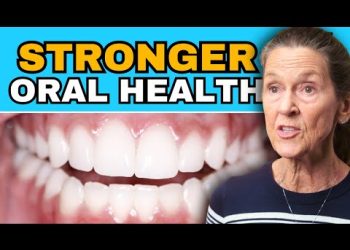Introduction
The debate on whether dental school is harder than medical school has been an ongoing discussion among students and professionals alike. Both involve rigorous training and are crucial in the healthcare system. This article seeks to compare and contrast the experiences shared by Dr. Daniel and Dr. Mike on their respective journeys through these demanding fields of study.
The Initial Journey
Dr. Daniel and Dr. Mike both pursued their careers inspired by family legacies in the medical professions. While Dr. Daniel attended the NYU College of Dentistry, Dr. Mike went through an accelerated program at the New York Institute of Technology College of Osteopathic Medicine. Their paths reflect the dedication required to enter these professions, albeit through slightly different avenues.
Education and Residency
Both dental and medical schools require extensive education followed by residency. Dental school typically spans four years, with the option for further specialization, which can take an additional three to four years. Medical school education is similarly structured, lasting four years followed by various residency programs depending on the specialization. The intensity and duration of these programs highlight the deep commitment needed for both fields.
Learning with Practical Skills
Dentistry requires superior hand skills as practitioners work directly on patients, focusing on detailed areas such as the mouth and teeth. Dr. Daniel mentions practicing on mannequins to refine these skills, which is crucial before working on actual patients. On the other hand, Dr. Mike discusses the diverse experiences in medical school, dealing with standardized patients and the unique encounters in cadaver labs, which are integral for understanding human anatomy.
The Financial Investment
The financial burden of both dental and medical schools is significant, often reaching hundreds of thousands of dollars. Both Dr. Daniel and Dr. Mike acknowledge the heavy financial load, which influences career choices post-graduation. This underscores the importance of financial planning and potential debt management strategies for students considering these career paths.
Tackling Exams and Assessments
Examinations are a relentless component of both medical and dental education, with frequent tests and practical assessments. Dr. Daniel speaks about the surprise of facing immediate exams upon starting dental school, while Dr. Mike recalls cadaver assessments and timed patient simulations that emulate real-world medical scenarios. This continuous assessment is designed to ensure competence and knowledge retention.
Personal Experiences with Professors
Both practitioners appreciate the influence of their professors in shaping their careers. Their educators not only offered knowledge but also mentorship that contributed to their professional growth. Being in proximity to experienced professors allowed them to witness real-life challenges and learn leadership skills essential for their future careers.
Balancing Personal Life
Dr. Mike and Dr. Daniel had different experiences balancing their personal lives with their demanding education. Dr. Daniel managed to integrate sports and personal time, but his academic focus remained a priority. Conversely, Dr. Mike faced personal challenges that affected his connection with peers, highlighting the personal sacrifices often made during professional training.
Challenges and Changes Desired
Both doctors would have appreciated fewer examinations throughout their education to allow more immersive learning and community integration. The relentless schedule of assessments can detract from the full educational experience, suggesting a potential area for curriculum improvement to reduce student burnout and enhance educational fulfillment.
Advice for Future Students
The crucial advice both doctors shared is the importance of perseverance and clarity of purpose in pursuing a medical or dental career. They emphasize doing it for the right reasons – not for financial gain or prestige, but for genuine interest and passion for the field. Understanding the core motivation can help students withstand the challenges of their rigorous journeys.











